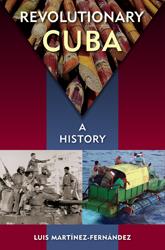This incredible cookbook, filled with hundreds of recipes that were used by people of all nationalities during the American Era, represents the merging of all those cultures. It aims to preserve the unique cultural and historical heritage of those dedicated men and women who labored to make the Canal truly one of the World’s greatest accomplishments.
Browse by Subject: History
Please note that while you may order forthcoming books at any time, they will not be available for shipment until shortly before publication date
Between the mid-nineteenth and mid-twentieth centuries, an influx of Europeans, Asians, and Arabic speakers indelibly changed the face of Latin America. While many studies of this period focus on why the immigrants came to the region, this volume addresses how the newcomers helped construct national identities in the Caribbean, Mexico, Argentina, and Brazil.
Fritz Müller (1821-1897), though not as well known as his colleague Charles Darwin, belongs in the cohort of great nineteenth-century naturalists. Recovering Müller's legacy, David A. West describes the close intellectual kinship between Müller and Darwin and details a lively correspondence that spanned seventeen years.
In this one-of-a-kind study of race and class in the Bahamas, Gail Saunders shows how racial tensions were not necessarily parallel to those across other British West Indian colonies but instead mirrored the inflexible color line of the United States. Proximity to the U.S. and geographic isolation from other British colonies created a uniquely Bahamian interaction among racial groups. Focusing on the post-emancipation period from the 1880s to the 1960s, Saunders considers the entrenched, though extra-legal, segregation prevalent in most spheres of life that lasted well into the 1950s.
In this cross-cutting cultural history, Gregg Bocketti traces the origins of football in Brazil from its elitist, Eurocentric identity as "foot-ball" at the end of the nineteenth century to its subsequent mythologization as the specifically Brazilian "futebol, " o jogo bonito (the beautiful game). Bocketti examines the popular depictions of the sport as having evolved from a white elite pastime to an integral part of Brazil’s national identity known for its passion and creativity, and concludes that these mythologized narratives have obscured many of the complexities and the continuities of the history of football and of Brazil.
An indispensable survey of the history and themes of the socialist revolution that forever changed Cuba and the world.
Duke convincingly posits that federation was more than a regional endeavor; it was a diasporic, black nation-building undertaking--with broad support in diaspora centers such as Harlem and London--deeply immersed in ideas of racial unity, racial uplift, and black self-determination.
In Priest Under Fire, Peter Sánchez tells the story of how one priest joined a movement to help his people and his country. He provides much-needed insight into both the Salvadoran civil war and the Catholic Church-influenced grassroots political movements, showing that they continue to inform Latin America today.
Contrary Destinies presents the story of the one hundred year relationship between the U.S. and Haiti.











